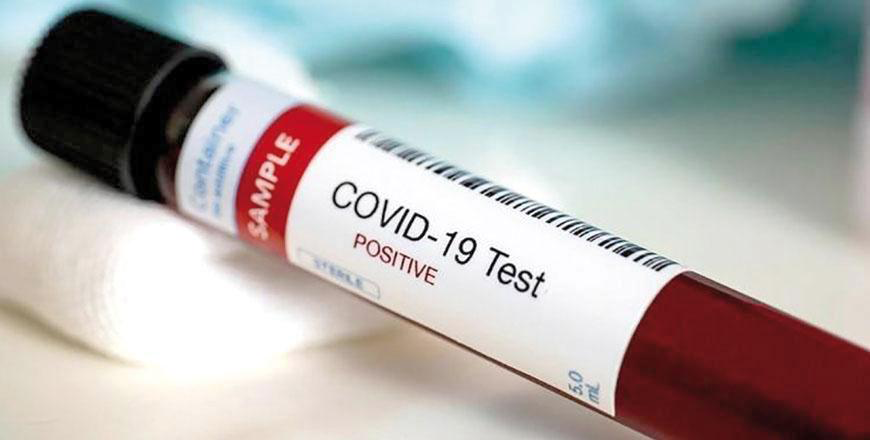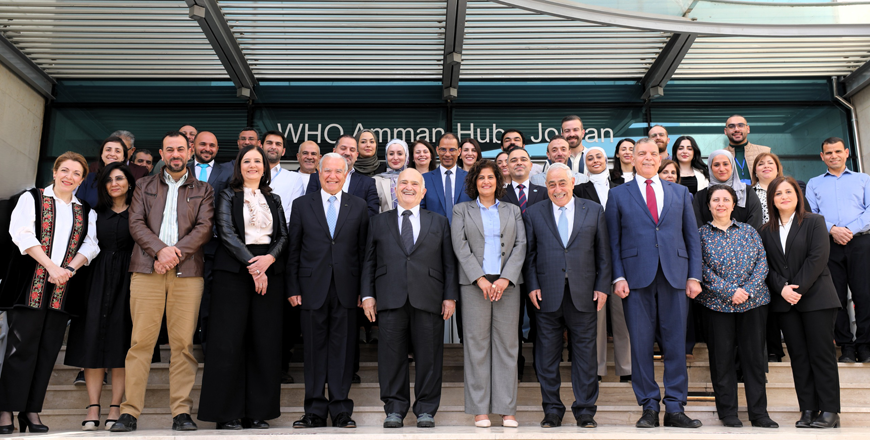You are here
International Day of Epidemic Preparedness sparks global call to strengthen health resilience
By Rayya Al Muheisen - Dec 28,2023 - Last updated at Dec 28,2023

The annual International Day of Epidemic Preparedness on December 27th prompts a collective re-evaluation of global strategies echoing the harsh lessons learned from the recent COVID-19 pandemic (Petra file photo)
AMMAN — As the world observes the annual International Day of Epidemic Preparedness on December 27th, a resounding call to action is observed across countries.
Mohannad Al Nsour, executive director of The Eastern Mediterranean Public Health Network told The Jordan Times that this important occasion prompts a collective reevaluation of global strategies to strengthen global health preparedness, echoing the harsh lessons learned from the recent COVID-19 pandemic.
Persistent challenges continue particularly financial disparities that leave epidemiological hotspots, particularly in poor countries, critically underfunded. “The inadequacy in training and qualification of health personnel further compounds these issues, necessitating urgent attention,” said Nsour.
Nsour highlighted that key indicators of preparedness, such as robust surveillance systems and technological integration, take centre stage in the global effort. Technological advancements and the integration of artificial intelligence contribute significantly to ensuring swift responses and effective crisis management.
At the grassroots level, community awareness and engagement become pillars in fostering trust between citizens and governments. International cooperation, stringent adherence to health regulations, and the establishment of timely support mechanisms remain integral components of a united and effective global response.
Looking ahead, the unwavering reality of global health threats underscores the importance of a collective commitment to preparedness. The emphasis shifts towards comprehensive support for vulnerable countries, coupled with strategic investments in human resources and technology. This, undoubtedly, paves the way for a future where global health resilience stands as a shared and unwavering responsibility.
However, Nsour added that the reality of the healthcare system in Jordan is characterised by the strength of the monitoring process and the ability to detect epidemic cases early, which has limited the spread of emerging and urgent epidemics.
Nasour urged on the occasion of the International Day for Epidemic Preparedness, to focus on the importance of preventing the spread of epidemics and preparing to face them by developing necessary plans and strategies, as well as spreading awareness and health education in the community.
He emphasised that awareness is crucial as one of the most important practical foundations in addressing epidemics. However, social integration is not less important than awareness; in fact, it is considered stronger and more important.
“Local community must be involved in the planning and implementation process, especially since awareness alone is not sufficient and human and social elements must be integrated into confronting and addressing the epidemic,” Nsour added.
Nsour noted that we must utilise technological and artificial intelligence advancements and harness them in the service of the monitoring, surveillance, and early detection system for urgent epidemics, using them in data analysis and visualisation processes. Technology is always present in the healthcare system and in addressing epidemics.
He pointed out that the recent pandemic has revealed the world’s unpreparedness for epidemics, as demonstrated by the COVID-19 pandemic, which revealed many weaknesses in the global healthcare system in the face of the crisis.
Related Articles
AMMAN — As the pandemic reached every corner of the world, the UN General Assembly declared December 27, as the International Day of Epidemi
AMMAN — The Jordanian National Centre for Epidemics and Communicable Diseases Control (JCDC) on Thursday emphasised the fundamental role of
AMMAN — HRH Prince El Hassan Bin Talal, Chairman of the Higher Council for Science and Technology, on Sunday visited the World Health Organi













